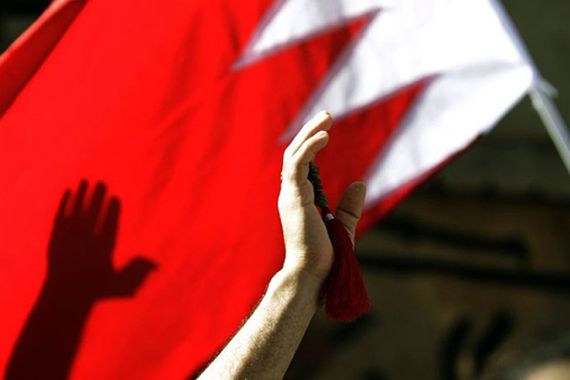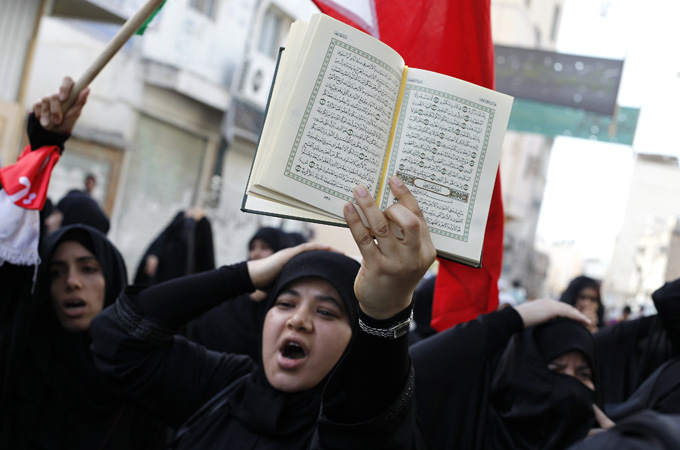Bahrain workers fired for supporting protests
Opposition group says hundreds of mostly Shia workers have been laid off for going on strike in March.

 |
| Clashes during Bahrain’s anti-government protests have left at least 13 demonstrators dead [Reuters] |
Bahraini firms have fired hundreds of mostly Shia Muslim workers who went on strike to support pro-democracy protesters, the opposition group Wefaq has said.
Officials at Batelco, Gulf Air, Bahrain Airport Services and APM Terminals Bahrain said they had laid off more than 200 workers due to absence during a strike in March.
Keep reading
list of 4 itemsA flash flood and a quiet sale highlight India’s Sikkim’s hydro problems
Why is Germany maintaining economic ties with China?
Behind India’s Manipur conflict: A tale of drugs, armed groups and politics
“It’s illegal in Bahrain and anywhere else in the world to just strike. You have to give two weeks’ notice to your employer,” one executive who did not wish to be named told Reuters news agency on Tuesday.
Bahrain’s unions called a general strike on March 13 to support the Shia protesters against the Sunni-led government. The strike was called off on March 22.
It followed security forces cracking down on protesters removing them from the Pearl Roundabout, a square in the capital, Manama, that they had occupied for weeks as the epicentre of the anti-government demonstrations.
Wefaq, which is Bahrain’s main Shia opposition group, said it estimated that more than 1,000 workers had been laid off and that most were Shia.
More lay-offs are expected at Bahrain Petroleum (Bapco) which has fired the head of its workers’ union. Workers fear that hundreds could be sacked at the company after parliament launched an investigation headed by a Sunni hardline deputy.
Sackings denounced
In Geneva, the International Labour Organisation (ILO) denounced the mass sackings and “other repressive measures” in Bahrain.
The United Nations agency said it would organise a high-level mission to the Gulf state as soon as possible to talk to the government and to worker and employer organisations.
Some analysts said large-scale dismissals of workers could be politically risky by speeding up the disintegration of Bahraini society into Shia and Sunni enclaves.
“They’re basically punishing people to the degree that they can, and I think in the long term this is a very risky strategy for them to take,” Gala Riani of IHS Global Insight risk analysts said.
Clashes between protesters and security forces have killed at least 13 demonstrators and four police since protests broke out in February.
Bloggers, activists and protesters have been arrested as as part of a crackdown on dissident, with more than 300 detained and dozens missing.
The government suspended the only opposition newspaper, Al Wasat, on Sunday, accusing it of falsifying news about the unrest, and replaced the editor.
It resumed printing on Monday, the same day the government arrested and expelled two journalists, both Iraqis. A government spokesperson said Al Wasat had broken press laws.